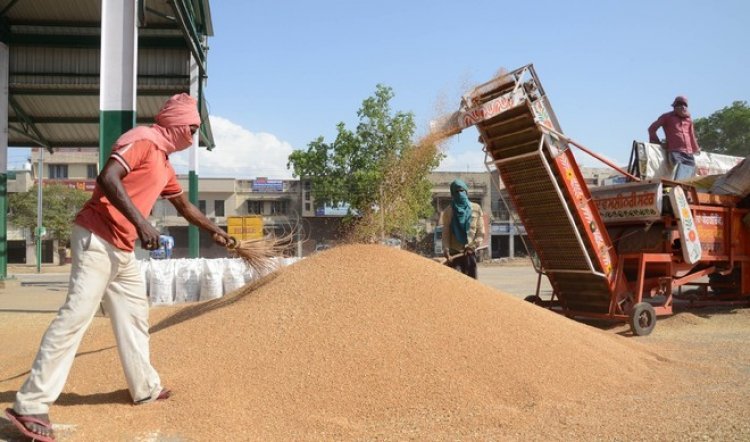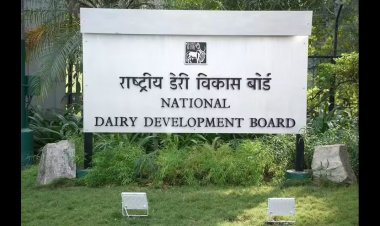Wheat weaving a story of farmers shrugging MSP, putting Govt in tight spot
The government seems to be desperate for a drop in wheat prices and expects that the market should ease as the next procurement season begins on April 1. While the wheat acreage has marginally increased this year to 34.10 million hectares from 33.98 million hectares in 2021-22, weather too would hold a key in the next two months. Government may try more tools to ensure a drop in wheat prices, apparently for the consumer interest . Not-so-apparent interest also lies in saving food subsidy which may shoot up if the FCI has to buy the grain well above the MSP

Wheat is weaving a different story this year. The grain ,the staple food for the northern Indian states and a preferred choice even for the southern and western states, is selling at Rs 2700-2800 per quintal in the mandis after crossing Rs 3000 per quintal. This had forced a panic button in the government which then asked the Food Corporation to sell three million tonnes in the open market to cool off prices. Atta is still selling above Rs 35 a kg for a regular variety.
The government is anxious for two reasons. One, retail inflation which had started retreating may start moving up in the headline numbers ; and two, it would mean the government would have to spend much more than the Minimum Support Price of Rs 2125 per quintal to refill its buffer stocks when the harvest reaches the markets of Haryana,Punjab, Madhya Pradesh and Rajasthan amongst other states from the second week of April. Centre must have in its pool at least 24 million tonnes to meet the requirements of the ration shops (Public Distribution System).
See a contrast ! We generally see farmers crying for the base (MSP) price and the government dilly-dallying. The heated market has turned the situation upside down - Government (FCI) counters would more than welcome farmers at their procurement counters in April and the farmers would say: Thank You Very Much . 'We would rather sell our grain at higher prices at the next counters in the open market'.
That would leave no option before the government than sweetening the MSP with what is generally known as ''bonus'' in the mandi jargon. Sure, this would be a happy situation for the farmers, but would leave a big drain on the Central Government's exchequer. Irrespective of the provisions in the Budget the food subsidy would then see a sharp jump in 2023-24 way above Rs 2.50 lakh crore. The current year itself would end up with a much higher food subsidy than Rs 1.46 lakh crore provided in the Budget estimates of 2022-23, thanks to PM Garib Kalyan Anna Yojna.
Mandarins in the Food and Public Distribution,Agriculture and the Finance Ministry can see the unfolding scenario and want to pre-empt it , though the entire situation is eminently pro-farmers. Two key measures have already been operationalised to somehow ensure softening of the prices of wheat and atta so that procurement costs come down for the forthcoming season. The Commerce Ministry is continuing with the export ban and the Department of Food and Public Distribution has announced the release of three million tonnes of wheat in the open market.
In this backdrop, the government seems to be desperate for a drop in wheat prices and expects that the market should ease as the next procurement season begins on April 1. While the wheat acreage has marginally increased this year to 34.10 million hectares from 33.98 million hectares in 2021-22, weather too would hold a key in the next two months. Government may try more tools to ensure a drop in wheat prices, apparently for the consumer interest . Not-so-apparent interest also lies in saving food subsidy which may shoot up if the FCI has to buy the grain well above the MSP.
But is it fair to farmers who get this kind of a chance of the market itself offering decent returns once after several seasons!.



 Join the RuralVoice whatsapp group
Join the RuralVoice whatsapp group








































